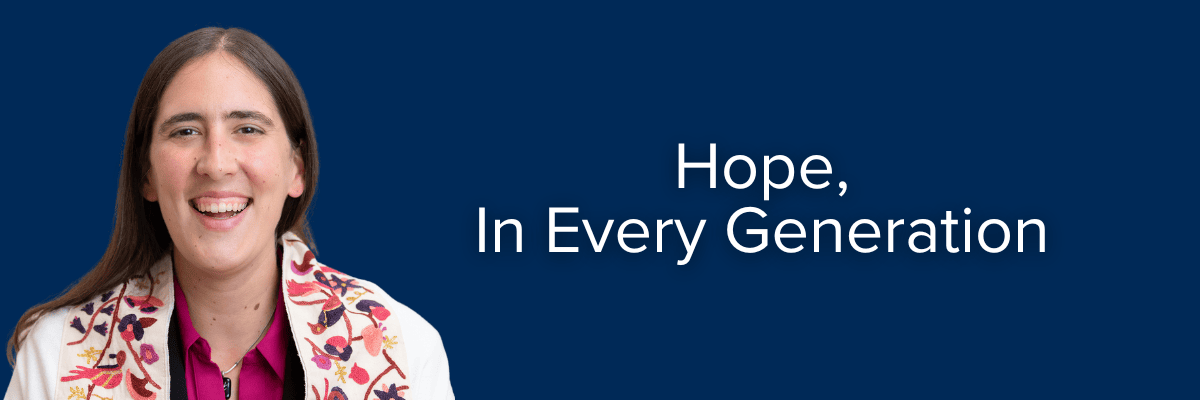“In every generation, each person is obligated to see themselves as though they had come out of Egypt.”
Each year, these words from the Passover Haggadah hit a little differently.
This year, I have been thinking a lot about something like this: what does it mean to remember the triumphant moments in the Exodus story, and try to put ourselves in the shoes of those recently freed, when many of us are gravely concerned about what seem like progressive losses of freedom, here and in many places around the world? When some of our people are still held hostage, after unspeakably many days? When the way forward is, for many of us, not all that clear (or clear but difficult, or clear in some ways and murky in others)?
There are probably as many answers to these questions as there are people asking them (and if my podcast feed and anecdotal conversations I’ve had in the TRS community are any indication, there are lots of people asking – with lots of great possible answers, too). This year as every year, we will each need to answer the call to imagine that we are the people leaving Egypt – and each need to ask ourselves what that act of imagining means in our lives, today and going forward.
I am still finding my way to an answer (and would love to hear some of yours). But for now, as a starting point, I have been thinking a lot about three songs.
The first is a reimagining of the “in every generation” haggadah quote by Elana Arian and Noah Aronson, and its English lyrics are a series of questions:
“Can you picture yourself crossing through and wandering the desert?
Can you feel the wind support you as you go?
Do you hear the cries of those left behind still hoping for tomorrow
Do you fear the mountain you still have to climb?” (Yatzah MiMitzrayim)
If we find ourselves in any of these places (or all of them at once), we are not alone, in history or in the present. We are part of a legacy of people who worked to leave narrow places, and help others leave narrow places. We are always somewhere on the journey – and we are not alone. In the words of singer-songwriter Holly Near: “someone was brave before me … I walk in their path.”
This Passover, may we be open to our tradition’s invitations to see bravery all around us:
-
bravery in the people who paved our way here, to this moment, over so many generations
-
bravery in the many people we share this world with who have survived so much, and sing songs of hope (like Sagui Dekel-Chen, a recently-released former hostage who released an incredibly moving song and reflection not two weeks after he returned home to his family)
-
and bravery inside of ourselves, to rise to the challenges of our moment, not alone, but together.
Chag Sameach,
Rabbi Alexandra Stein


